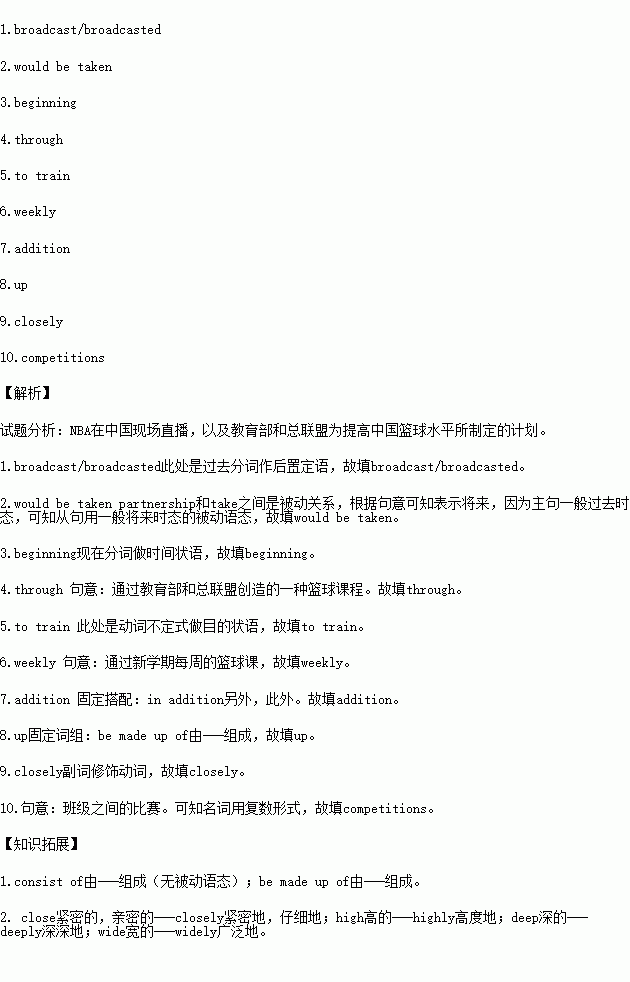题目内容
阅读下列材料,在空白处填入适当的内容(1个单词)或括号内单词的正确形式。
For the majority of fans, the NBA means a series of exciting games1.(broadcast) on TV, but for some students in China, the world’s top basketball league means something closer to real life.
On June 6, NBA China and the Chinese Ministry of Education said that their partnership2.(take) further to improve fitness and basketball development in elementary, middle and high school across China.
According to China Daily, 3. (begin) in September, the pilot program(试点计划) in 500 schools in 10 provinces will give students basketball training4.a basketball curriculum created by the Ministry of Education and the NBA.
NBA China will also host five coaching classes in August5.(train) PE teachers from 500 schools using the newly-designed basketball curriculum. The teachers will then share their knowledge with students through6. (week) basketball classes in the new semester.
In 7., NBA China and the Ministry of Education will start a guiding committee made8.of basketball experts from China and the US to advise schools on basketball programs.
The two parties will work9.(close) to run school basketball leagues and10. (compete) between classes. They will also share training videos and other programs online to develop basketball skills in elementary, middle and high schools.
 A加金题 系列答案
A加金题 系列答案 全优测试卷系列答案
全优测试卷系列答案
